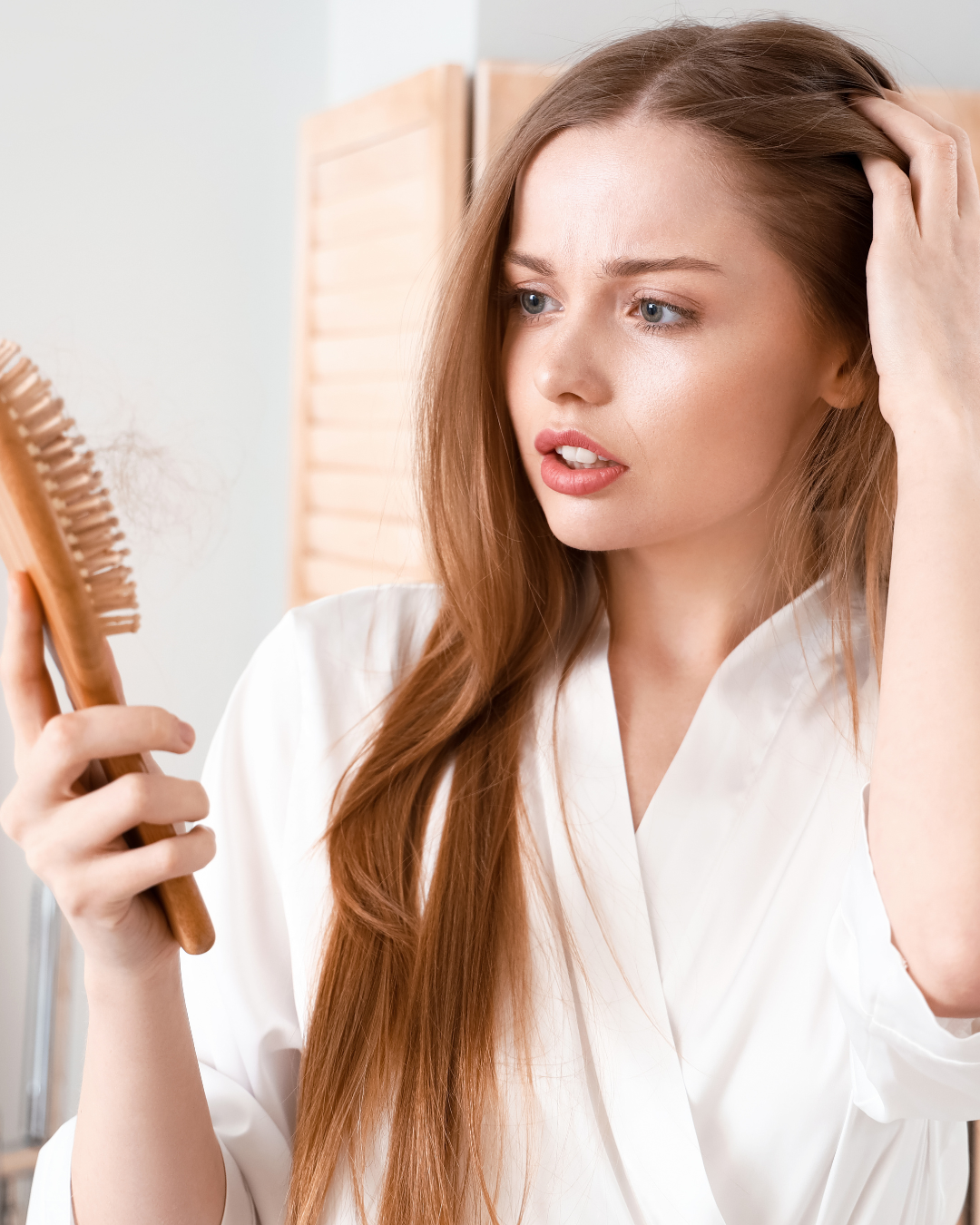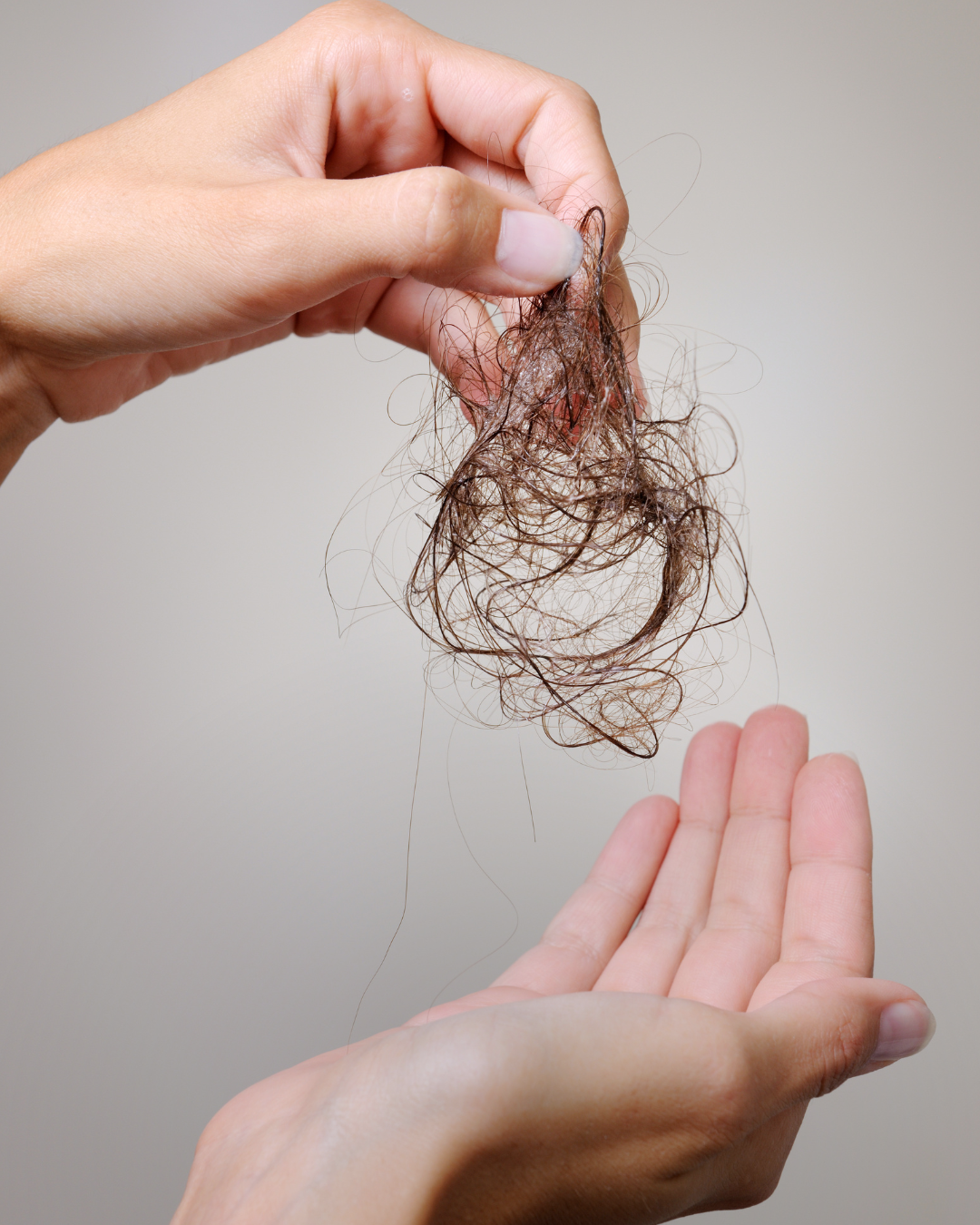Dengue, Immunity, and Hair Loss: What You Need to Know
Dengue is a viral infection transmitted by the Aedes aegypti mosquito. In addition to the classic symptoms such as high fever, body aches, and extreme fatigue, it can also have lesser-known side effects, such as hair loss. Many people report a significant increase in hair shedding after recovering from the illness, and this connection has scientific explanations.
The impact of dengue on the body goes far beyond the infection period. As the virus compromises the immune system and triggers intense stress in the body, it can directly affect hair health. But why does this happen? And how can it be reversed? Let’s take a closer look.
How Does Dengue Affect the Body and Hair Health?
During a dengue infection, the immune system goes into overdrive to fight the virus. This triggers intense inflammation throughout the body and can lead to a temporary drop in immunity. As a result, non-essential functions like hair growth may be temporarily interrupted.
Additionally, dengue can trigger a condition called telogen effluvium, in which hairs prematurely enter the shedding phase due to the physical stress caused by the illness. This type of hair loss typically occurs between one and three months after the illness and may last for weeks or even months, depending on the person’s nutritional and immune status.
Main Causes of Post-Dengue Hair Loss
- Systemic Inflammation and Immune Response
The dengue virus causes widespread inflammation that affects many tissues, including the scalp. This inflammatory process can weaken hair follicles, leading to more intense hair loss than usual. - High Fever and Physical Stress
High fever—one of the main symptoms of dengue—can disrupt the hair growth cycle. During intense fever episodes, the body redirects its energy to essential functions, putting hair follicles into an extended resting phase. This means that many hairs may fall out at once several weeks later. - Nutritional Deficiencies
Dengue can cause loss of appetite and difficulty absorbing essential nutrients. This can lead to deficiencies in vitamins and minerals such as iron, zinc, biotin, and B-complex vitamins—all of which are vital for hair growth and strength. - Use of Medications
During dengue treatment, some medications can have side effects that affect hair health. Anti-inflammatories, pain relievers, and even antibiotics used in more severe cases may interfere with the hair growth cycle. - Post-Viral Telogen Effluvium
Telogen effluvium occurs when a large number of hairs enter the resting phase at the same time due to the stress of a severe infection. This can happen after viral illnesses, surgeries, or physical and emotional trauma—and dengue is no exception. This shedding often begins 6 to 12 weeks after the infection, when hair starts to fall out in noticeable amounts.
How to Prevent and Treat Hair Loss After Dengue
If you’ve had dengue and noticed increased hair shedding, the good news is that it’s usually temporary. However, there are steps you can take to minimize the issue and speed up your hair’s recovery.
✅ Stay Well Hydrated
Dengue can cause severe dehydration, which affects not only overall body function but also scalp nutrition. Drinking plenty of water is essential to help restore immunity and rehydrate hair follicles.
✅ Improve Your Diet
After dengue, it’s crucial to focus on a diet rich in proteins, iron, zinc, and B-complex vitamins. Some helpful foods for hair recovery include:
✔ Eggs, lean meats, and legumes (sources of protein and iron)
✔ Citrus fruits (rich in vitamin C, which boosts iron absorption)
✔ Nuts and seeds (rich in zinc and biotin)
✔ Dark leafy greens (good sources of iron and antioxidants)
✅ Manage Stress and Anxiety
Post-illness stress can worsen hair loss. Techniques such as meditation, mindful breathing, and light physical activities can help reduce stress and support hair recovery.
✅ Avoid Harsh Chemicals and Excess Heat on Hair
During recovery, avoid aggressive chemical treatments like straightening, bleaching, and coloring. Excessive use of blow dryers and flat irons can also further damage already weakened hair.
✅ Consider Supplements and Topical Treatments
If hair loss is severe and lasts longer than three months, vitamin and mineral supplementation may be necessary. Additionally, topical treatments like stimulating lotions and scalp massages can help strengthen follicles and encourage regrowth.
When to Seek Professional Help
If hair loss is severe and continues for more than four months after recovering from dengue, it’s important to consult a specialist such as a dermatologist or trichologist. They can assess the cause and recommend the best treatment options for stimulating hair growth.
Hair loss after dengue can be a frightening side effect, but understanding its causes is the first step toward recovery.
As your body needs time to fully recover from the infection, adopting healthy habits, boosting immunity, and maintaining a proper hair care routine are essential.
If you’ve had dengue and are experiencing hair loss, remember: with patience and the right care, your hair can grow back strong and healthy!
Text by: Adriana Ferrantti
Technical Ambassador at The One





